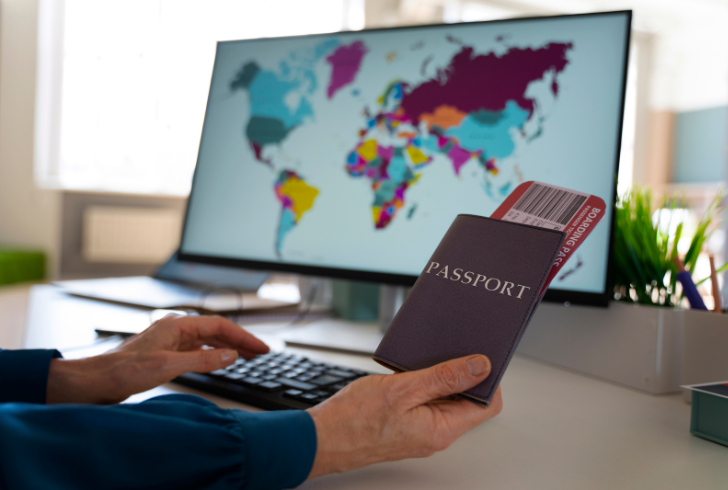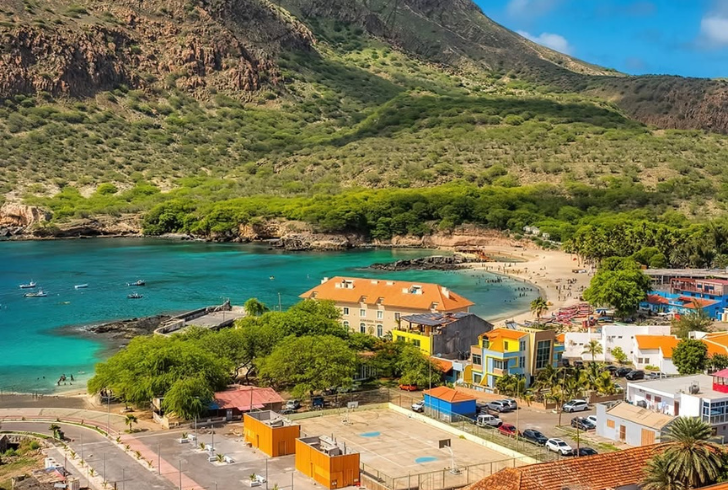What was once a fantasy—logging into work from a sunny coastline or a forested hillside—is now a practical reality for many. The digital nomad lifestyle has pushed countries to reconsider the line between travel and labor. While some are rolling out the welcome mat with remote work visas, they’re also cracking down on short-term tourists. And in that policy tangle, even nomads are feeling the pinch.
The Rise of Nomads
Long before remote work became common, a few early adopters had already figured out how to combine travel with productivity. In the late ’80s, Steven K. Roberts crisscrossed the U.S. on a bicycle loaded with solar panels and a portable computer. He wasn’t just exploring—he was working.
Fast forward to today, and the idea of working from anywhere is no longer rare. Advances in communication tech and a cultural shift during the pandemic made remote work a permanent reality for many. According to the U.S. Census Bureau, remote workers tripled between 2019 and 2021.
As offices emptied out, borders opened up to a new kind of traveler. Dozens of countries, from Estonia to Thailand, launched digital nomad visa programs. These permits offer longer stays than tourist visas and allow remote professionals to legally live and work in a foreign country—without taking local jobs.
What These Visas Offer

Freepik | A common digital nomad visa requirement is stable income from abroad.
Digital nomad visas vary by country, but most share a few common requirements:
1. Proof of stable income from an overseas employer or freelance work
2. An application fee
3. Health insurance coverage during the stay
Some programs allow family members to join, offer tax benefits, or even provide paths to permanent residency. For example:
Panama: Offers tax residency opportunities
Belize: Lets children of nomads attend local schools
Spain and the Netherlands: Allow time spent under nomad visas to count toward citizenship
As of 2024, over 20 European countries offer some version of this visa. Others include popular expat spots like Bali, Colombia, and Dominica. The appeal is clear—legal status, flexibility, and a chance to live somewhere new for longer than a short trip allows.
Tourism Backlash and Its Effect on Nomads
There’s a shift happening: while governments are rolling out the welcome mat for remote workers, they’re also trying to rein in the chaos of overtourism. Locals in many cities have pushed back against packed streets, rising rents, and disrupted neighborhoods.
Barcelona is taking a hard stance, aiming to eliminate short-term rentals entirely by 2029. In New York, tighter Airbnb rules have made it harder for tourists to find a place to crash. Venice now charges visitors a daily fee during peak season. Meanwhile, destinations like Bali and Dubrovnik have begun cracking down on certain tourist behaviors with bans and added taxes.
These policies aim to protect residents and control crowd sizes—but they also make life harder for nomads who rely on short-term rentals. Many digital nomad visas require a one-year lease, but not everyone wants to live in the same city for that long. Airbnb-style options offer flexibility, trusted reviews, and easier setups than navigating local real estate markets.
Are Nomad Visas Delivering?
Despite growing interest, digital nomad visa approval numbers remain modest. As of early 2024:
1. Croatia: 680 approvals
2. Estonia: 535 approvals
3. Portugal: 2,600 in its first year
4. Spain: Nearly 7,500 in 10 months
5. Thailand: About 1,200
These are small figures compared to the tens of millions of people globally who identify as digital nomads. Many still choose to work from abroad without a visa, relying on tourist visas and doing occasional “border runs” to reset their legal stay.
So why the low uptake? Complicated tax issues, expensive housing, and bureaucratic barriers discourage longer-term stays. Not all nomads want to commit to a full year in one place. Others avoid the risk of making a move only to face sudden policy changes that impact where and how they live.
Rethinking What Nomads Bring

Instagram | Cabo Verde promotes nomadism to combat overtourism, fostering longer, more immersive visits.
While traditional tourism is often seasonal and concentrated in city centers, nomads offer something different:
– Longer stays
– Steady spending across more months
– Opportunities to support smaller towns and less-visited regions
Countries like Cabo Verde have promoted nomadism as a solution to overtourism, encouraging longer visits and deeper cultural connections. Nomads aren’t just visitors—they’re temporary residents with local routines, working hours, and spending habits.
Some even contribute to rural revitalization. Companies like Rooral in Spain are helping remote workers relocate to villages at risk of depopulation, where their presence supports local businesses and schools.
Building a Better Future for Nomads
Governments are walking a tightrope—trying to protect local life without shutting the door on global visitors. Digital nomads fall somewhere in between the categories, not quite tourists and not exactly immigrants, which makes things tricky.
They often spend longer in one place, contribute steadily to the local economy, and help keep businesses afloat during the off-season. But if the rules are too rigid or nomads are lumped in with short-term vacationers, countries may end up discouraging the very people they hoped to welcome.
The key is to design policies that reflect the real habits and needs of nomads—flexibility, affordability, and respect for local communities. If done right, nomadism isn’t just a trend—it’s a smarter, more sustainable way to live and work across borders.




